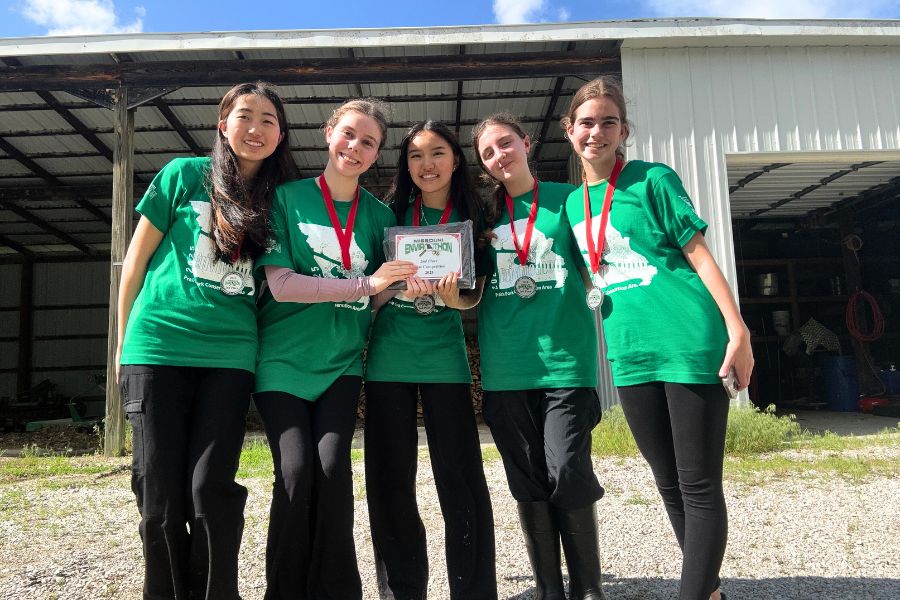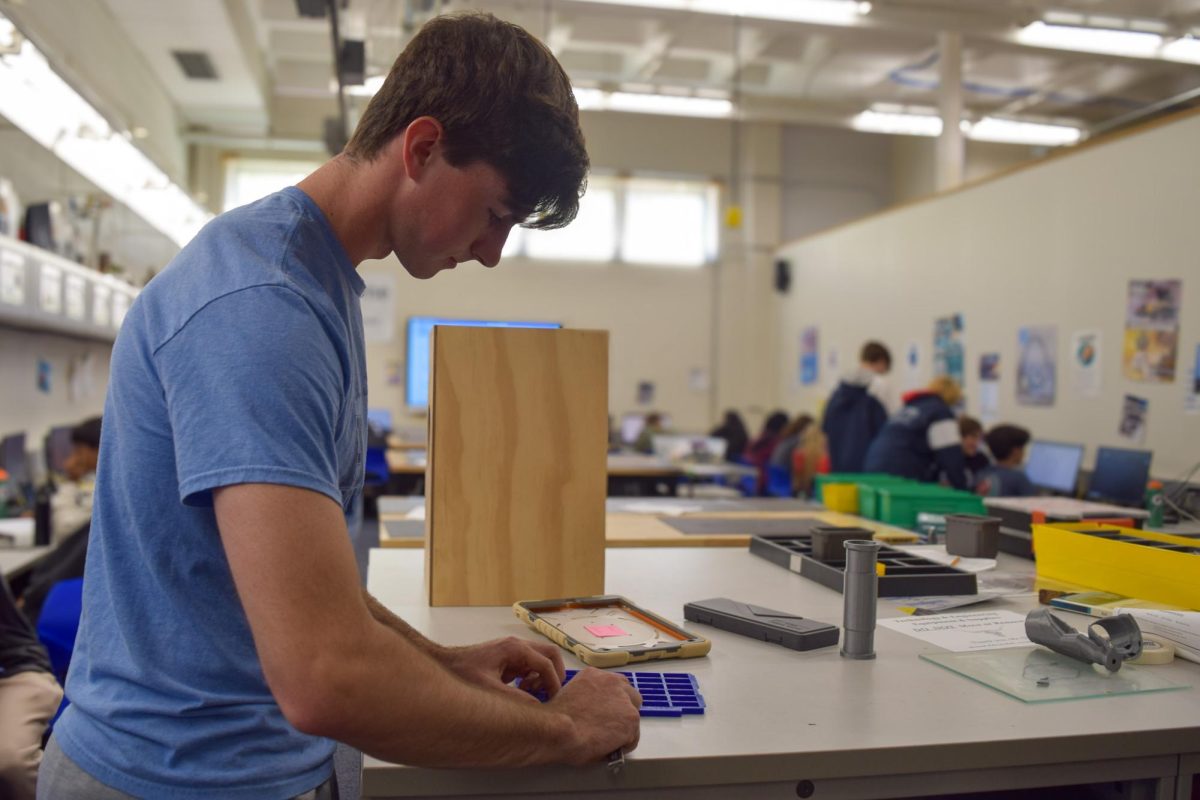St. Louis is one of the most racially segregated cities in the United States, according to a study by the Manhattan Institute. The BBC News article, ‘Crossing a St. Louis street that divides communities’ describes Delmar Boulevard, which spans the city from east to west, as St. Louis’s dividing line from rich to poor and black to white.
Examples of mistrust, intolerance, misunderstanding and inequality are everywhere. Individuals who cross the “color boundaries” of our city may find themselves being followed, pulled over, and sometimes even harassed.
Cultural Leadership is a program focused on learning about the roots of this inequality and what can be done to change it.
“The goal of Cultural Leadership is to create a future generation of leaders, activists and change agents who will fight for social justice, inclusion and an end to discrimination,” Maggie Harris, the director of Programs and Operations for Cultural Leadership said.
Cultural Leadership is in its ninth year of existence. Each year, the program selects 25-30 high school sophomores and juniors from high schools throughout the greater St. Louis area. Most of the students are either African Americans or Jewish Americans; however, there are white Christian Americans as well. The students spend a full year attending workshops and weekend retreats where they learn about both the African American and Jewish experiences, including the roots of discrimination, prejudice, anti-semitism and social injustice.
“Cultural Leadership has changed my life as well as encouraged my previous thoughts. I have put my ideas into action and already have thought of how I will incorporate social justice into my career. It changed me, because whenever I hear a simple comment that is ignorant or discriminatory, I don’t just sit there. I do something. I say something,” junior Barri Wishne said.
In addition, students participate in a three week “Transformational Journey” in June, at which time they visit places of civil rights and social justice significance, including New York City; Washington D.C.; Atlanta, GA, and many other cities throughout the south. They meet with and learn from leaders who have made – and are still making – significant contributions to improving society, such as Senator Claire McCaskill and Chief Justice Clarence Thomas.
“My most memorable experiences during the transformational journey came from bonding with my village as well as hearing motivational speakers. It was important to me that I really hear what they had to say because after all they started out just like me, not knowing exactly how they would make a difference,” Wishne said.
There is a rigorous selection process in order to find teens that demonstrate curiosity, maturity, a sense of civic responsibility and leadership potential. Once accepted participants spend almost 425 hours in intensive programming.
“I would advise people who are interested in joining to understand that Cultural Leadership is not a simple program. It enhances your abilities to read the facts and take action. Yes, it is a serious program, but it was the most fun and invigorating program I have ever been a part of,” Wishne said. “Cultural Leadership is a place where my true values were met with my classmates. It was a chance to practice the mindset I had had all along, about enduing bigotry. Cultural Leadership wasn’t just a program but a lifestyle to live up to and have fun with at the same time.”
In November 2013, Cultural Leadership will accept applications for the 2014 year. To learn more about the program check out www.culturalleadership.org

![Sophomore Aleix Pi de Cabanyes Navarro (left) finishes up a soccer game while junior Ava Muench (right) warms up for cross country practice. The two came to Parkway West High School as exchange students for the 2025-2026 school year. “The goal for the [exchange] program is to provide opportunities for both Parkway students and our international exchange students to learn about other cultures, build connections and become confident, capable, curious and caring — Parkway’s Four C’s — in the process,” Exchange Program Lead Lauren Farrelly said.](https://pwestpathfinder.com/wp-content/uploads/2025/10/Feature-Photo-1200x800.png)

![Gazing across the stage, sophomore Alexis Monteleone performs in the school theater. The Monteleone family’s band “Monte and the Machine” has been releasing music since 2012, but Alexis started her own solo career in 2024 with the release of her first single, Crying Skies. “My whole family is very musical, [and I especially] love writing [songs with them],” Monteleone said.](https://pwestpathfinder.com/wp-content/uploads/2025/09/DSC7463-1200x798.jpg)
![Amid teaching a lesson to her AP Calculus BC class, Kristin Judd jokes alongside her students in their funny remarks. Judd has always enjoyed keeping the mood light in her classroom, along with on the volleyball court. “[I enjoy] that side talk where you see [or] overhear a conversation and chime in, or somebody says something funny,” Judd said.](https://pwestpathfinder.com/wp-content/uploads/2025/09/image-1200x730.jpg)
![Eyeing the ball, junior Ella McNeal poses for her commitment pictures at Clemson University. McNeal’s commitment comes after months of contact with top Division 1 soccer programs. “ It has taken a lot to get to where I am, but I know that [what] I've already been through is just the beginning, and I can't wait for what is to come,” McNeal said.](https://pwestpathfinder.com/wp-content/uploads/2025/09/IMG_4926-1200x900.jpeg)


![Senior Adam Zerega stands with senior Dexter Brooks by farm equipment. Zerega often worked with friends and family on his farm. “I've been able to go to my family's farm since I was born. I [spend] at least three weekends a month [on the farm], so I'm there all the time,” Zerega said.](https://pwestpathfinder.com/wp-content/uploads/2025/04/IMG_4872-1200x900.jpg)

![Phage grown by senior Rio Naghibi Harat sit in petri dishes. Through Webster University, Naghibi Harat was given the opportunity to develop phage as a potential remedy for tuberculosis. “Phage are everywhere. I got mine from a soil sample. I'm not kidding; I picked [it] up from dirt. They're harmless, unless you code them to do something, and they can evolve. Virus antibiotics can't. They're one solid molecule. A strain of this bacteria [can evolve] that is resistant to [a] particular drug, [but] phage will evolve with the bacteria. They can see the changes, and they can be the change,” Naghibi Harat said.](https://pwestpathfinder.com/wp-content/uploads/2025/04/Flag-2.png)